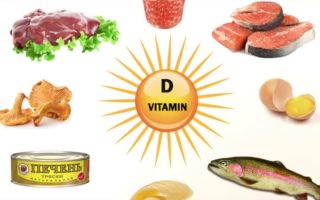Content
- 1 Should I give vitamin D to newborns?
- 2 Indications for the use of vitamin D for newborns
- 3 Which vitamin D is best for newborns
- 4 Best Vitamins D for Babies
- 5 How to give vitamin D to a newborn
- 6 Precautions
- 7 Allergy to vitamin D in infants
- 8 An excess of vitamin D in infants
- 9 Contraindications and side effects of vitamin D3 for newborns
- 10 Conclusion
Vitamin D3 is one of the important substances for the human body. Most of all, it is necessary for the full development of children. This type of trace mineral helps to strengthen bones and teeth. If there is a lack of it, there will be signs of rickets, diseases of the musculoskeletal system and the nervous system. Therefore, doctors often prescribe vitamin D for newborns.
Should I give vitamin D to newborns?
Many parents, after the birth of a newborn, fall into doubts. They wonder if vitamin D is really necessary for newborns and whether it is necessary to give drugs with its content. Doctors begin to prescribe it after 1 month of the baby's life at the first appointment.
Experts explain this by the fact that vitamin D in newborns takes an active part in the formation of bone and muscle structures. It strengthens the immune system, accumulates calcium and phosphorus in bones and teeth, and prevents the formation of malignant cells.
The first signs of vitamin D deficiency in newborns appear as:
- constant crying, restless sleep;
- refusal to eat;
- the appearance of excessive sweating, especially in the area of the palms and feet;
- abrasion of hair in the back of the head;
- softening the edges of the fontanelle;
- late teething;
- deformation of the teeth, damage to the enamel;
- muscle weakness.
Often, babies are impaired in terms of mental development.
If the vitamin D level in newborns is low, it will lead to the development of rickets. The bone tissue will become soft and unable to withstand the body's stress.
In addition to rickets, babies may experience the following symptoms:
- increased muscle fatigue;
- cardiovascular disease;
- type 1 diabetes mellitus;
- oncological diseases of the digestive tract, breast or ovaries.
Lack of vitamin D in newborns is dangerous by the development of hypercalcemia and hypercalciuria. Then the kidneys, bronchi, articular tissues and skin are calcified. But there are also reverse situations when primary kidney diseases lead to a decrease in the absorption of this trace element.
Indications for the use of vitamin D for newborns
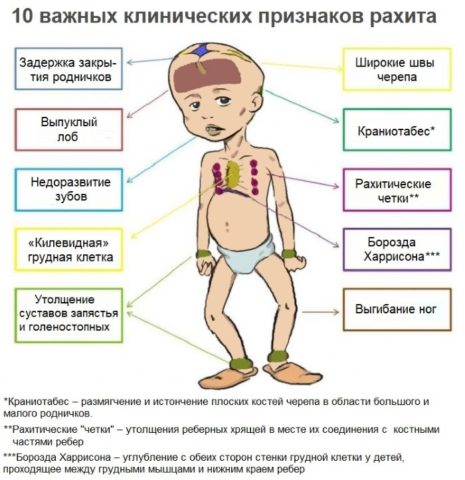
It is not recommended to take drugs with cholecalciferol in summer. Better to spend more time outdoors and sunbathing. From September to May, it is necessary to introduce a prophylactic dose of a trace element.
Vitamin D3 for babies is indicated for the following factors:
- the development of complications during labor;
- premature birth;
- hypertrophy in newborns;
- violation of metabolic processes;
- frequent use of anticonvulsants;
- the birth of a baby in the winter time.
It is necessary to take medicines for those children who have been diagnosed with rickets.In such cases, a high dosage is prescribed, depending on the general condition and the degree of development of the disease.
Several factors affect the appointment of vitamin D in newborns:
- Area of residence... The active production of vitamin D occurs when the skin is exposed to ultraviolet rays. Therefore, in the southern regions of the earth, the body receives it in sufficient quantities.
- Lactation... Doctors believe that if newborns consume breast milk, then the body has a normal level of this trace element. As soon as the baby is transferred to complementary foods, artificial or mixed feeding, dietary supplements are prescribed to him.
- Season... Vitamin D is recommended to be taken from September to May, when the sun is in low activity. In the summer, you do not need to drink dietary supplements. Better to spend more time outdoors.
Which vitamin D is best for newborns
Many parents are interested in the question of what form is best to give vitamin D to newborns. Ultraviolet rays are responsible for the level of this trace element. The more the baby is in the sun, the more it is produced.
The baby receives some of the calciferol from breast milk. But in the aggregate of these factors, this is not enough for full development. Therefore, drugs are prescribed as a prophylaxis.
Most often, vitamin D drops are prescribed for newborns. The average dosage is 500 IU, which equals 1 drop.
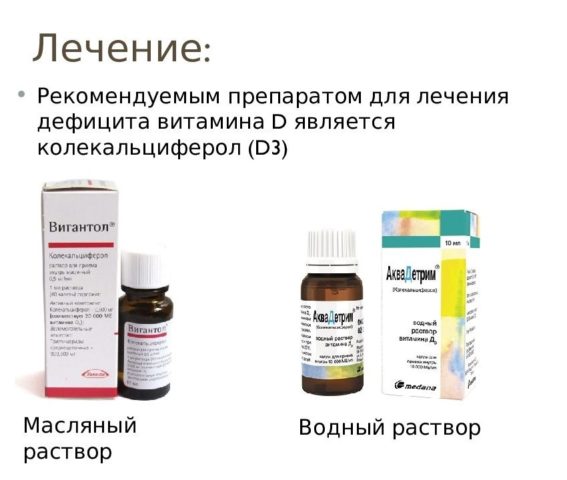
Before purchasing a medicine, several criteria must be considered:
- Product quality... You can only evaluate it based on reviews and personal experience.
- Manufacturer... More preference is given to foreign companies. This is due to the presence of an environmentally friendly composition, good absorption of the drug and the absence of allergic reactions.
- The cost... This factor is also equally important. The drugs are slightly more expensive and are well tolerated by patients. But it should be borne in mind that dietary supplements will have to be taken for a long time. Therefore, it is necessary to assess your financial strength in terms of re-purchasing calciferol.
It is important to know which vitamin D is best for newborns. It is believed that the aqueous solution is absorbed faster by the intestinal walls, but it lasts longer. Oil drops are more difficult to dose, so there is a high risk of overdose. This type of drops should not be given to babies with stomach problems, digestive tract or kidneys. In addition, oil solutions are considered more toxic.
Best Vitamins D for Babies
You need to start taking dietary supplements from 1 month of age. Vitamin D is prescribed to newborns from 2 weeks if the child was born prematurely.
Oil-based preparations do not contain alcohol. Contains natural herbal ingredients. Well absorbed by the body and easy to use.
Aqueous solutions are no less popular. But it is believed that they adversely affect the functioning of the nervous system. Babies become very agitated, sleep poorly and show moodiness.
There is a list of vitamin D medicines for babies. To determine what is best for babies, you should first read the instructions.
Vigantol
Produced by the German pharmaceutical company Merc Serono. 1 drop contains 667 IU of vitamin D3. The bottle has a volume of 10 ml.
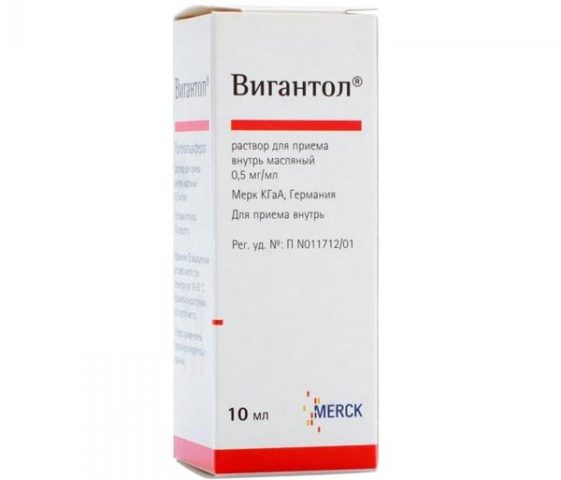
The drug belongs to fat-soluble drugs. The use of an oil solution contributes to the independent production of the vitamin in the body.
There are also disadvantages - high cost, it is more difficult to tolerate a not fully formed digestive tract.
Aquadetrim
Most often buy vitamin D Aquadetrim for newborns.Manufacturer - Polish pharmaceutical company Medana Pharma. Belongs to the category of water-based solutions. Available in drops. The volume of the bottle is 10 ml. 1 drop contains 500 IU of active ingredient.
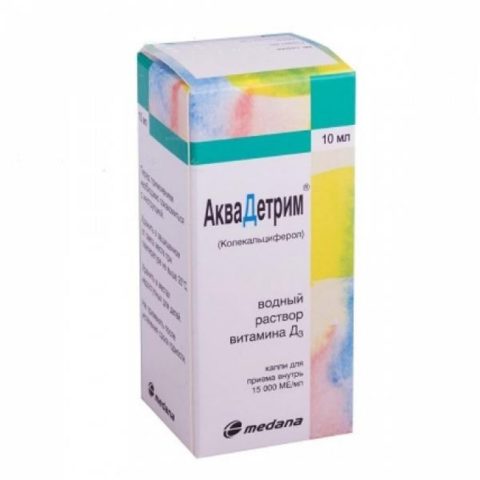
Better tolerated by the digestive tract.
Among the shortcomings, one can single out - the presence of an inconvenient dispenser, the content of alcohol in the composition.
Davisol
Vitamin D, intended for newborns and babies up to 3 years old. Manufacturer - Finland. In addition to the active ingredient, the composition contains palm and coconut oil. It has no preservatives, which is a definite plus. But there are a number of disadvantages in the form of inconvenient dosage. To get 400 IU into the body, you must take 5 drops at a time.
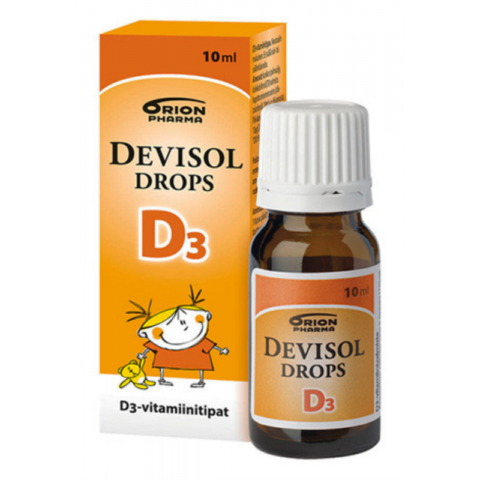
A good drug for the prevention of vitamin D deficiency in newborns. But due to the low dosage, it is not used to treat rickets
D3 Wit baby
Presented in capsules with oily liquid inside. Produced by the Polish pharmaceutical company Master Pharm. The capsule can be given completely to children from 3 years of age. Oily contents with vitamin D are dissolved in newborns in water or milk. In 1 piece contains the daily dosage. But it has a high cost.
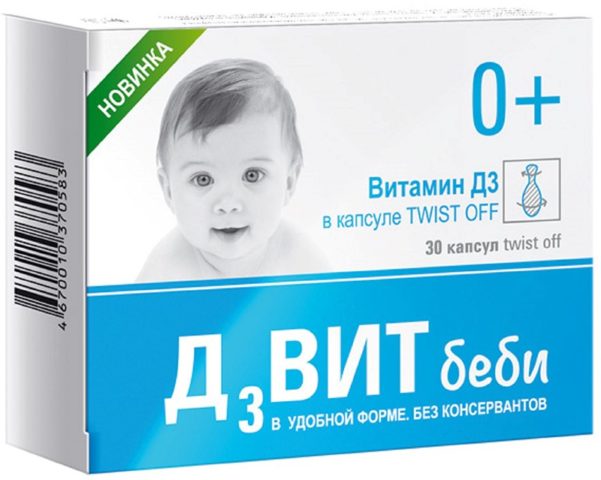
Minisan
The manufacturer is the Finnish company Verman. Release form - drops. Babies are prescribed 2-3 drops per day, older children are shown from 4 to 5 drops per day. Such vitamin D for newborns is more suitable for prevention.
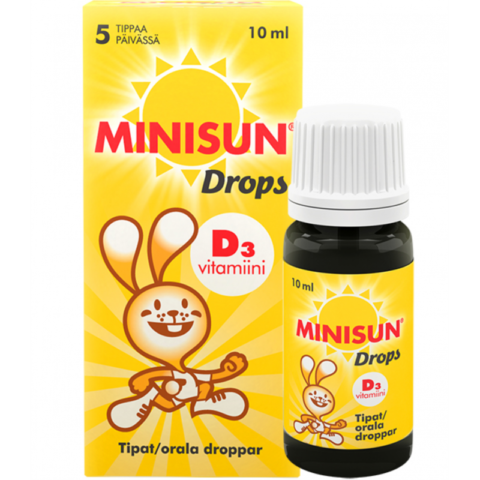
Complivit Calcium D3 for babies
The drug is from a domestic manufacturer. It is produced in powder, which is intended for the preparation of a suspension. The finished syrup has a pleasant orange flavor. The active ingredients are calcium - 200 mg and vitamin D3 - 50 IU.
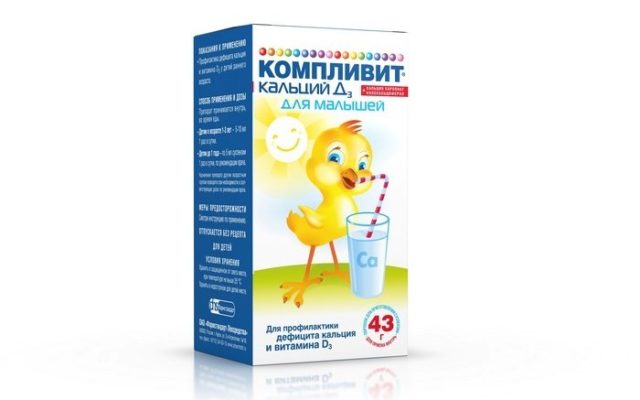
Replenishes not only the lack of calciferol in the body, but also promotes better absorption of calcium. Allowed for children from birth.
D-tipat Multitabs
The medication is available in the form of drops. The volume of the bottle is 10 ml. Convenient because the kit includes a pipette. You can accurately measure as many drops as needed. Designed for children from birth.
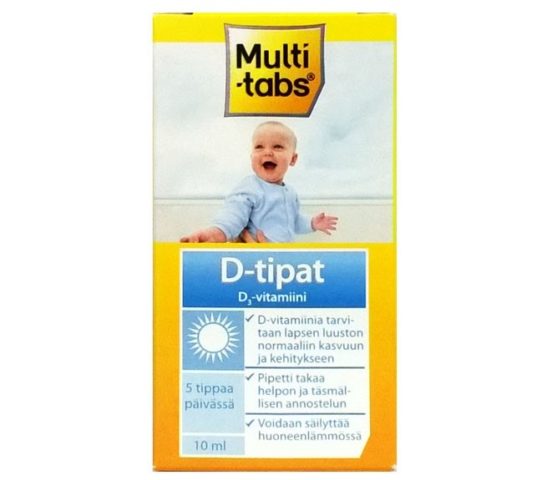
Alpha D3-Teva
Manufacturer - Israel. One of the most effective but expensive means. Release form - capsules, inside of which there is an oily liquid. There are 3 dosages - 0.25, 0.5 and 1 mcg. The composition includes 2 active ingredients - alfacalcidol and alpha-tocopherol. It is a regulator of calcium-phosphorus metabolism. Replenishes vitamin D deficiency in newborns.
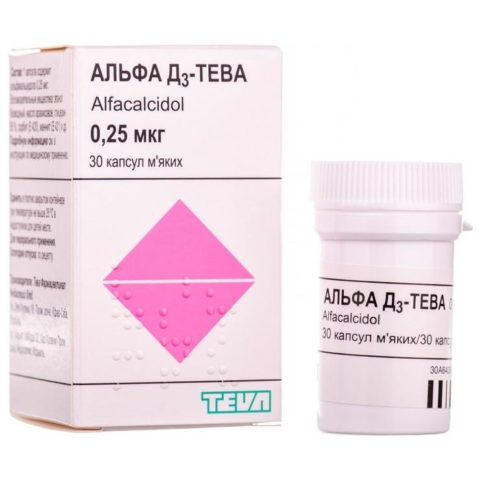
How to give vitamin D to a newborn
It is recommended to give vitamin D to newborns in the morning before 12 noon. Preventive therapy lasts from September to May. At the same time, after every month of admission, they take a break for 7-10 days.
The selection of the dosage depends on the purpose of the therapy. If prophylaxis is carried out, then infants are prescribed 1 drop at a dose of 500 IU per day. For premature babies and twins, the dosage is increased to 1000 IU. For the treatment of rickets, up to 5000 IU is shown, which equals 8-9 drops.
Vitamin D for a newborn can be dripped onto the tongue or the inner part of the lip, added to milk or water.
Precautions
Vitamin D can be given for jaundice in newborns. Its use has no effect on the amount of bilirubin in the blood. The liver is responsible for its level, which is not yet sufficiently developed in infancy. It is useful not only to give medicine, but also to walk more.
The famous doctor Komarovsky believes that the prevention of rickets is one of the important but simple tasks.He is not only advised to give newborns vitamin D in drops, but also to be in the sun more often. In the autumn-winter period, the pediatrician recommends traveling to those countries where it is summer all year round.
If the baby is fed with breast milk, then it is not necessary to give the drug to him. But mom should accept it. You can give preference not only to oil solutions, but also multivitamins, which include this element.
The substance can be obtained not only from pharmaceuticals, but also from food. After the parents have introduced complementary foods or transferred the child to a common table, it is recommended to include in the diet:
- fish;
- seafood;
- butter;
- Cod liver;
- milk;
- dairy products;
- oatmeal;
- cheese;
- potatoes;
- parsley;
- buckwheat.
Up to one year old, the baby should feed on breast milk. Vitamin D in drops is given to newborns daily and transferred to an adapted mixture if breastfeeding is not possible.
Allergy to vitamin D in infants
In childhood, individual intolerance to the constituent components of aqueous and oil solutions often occurs. The immune system perceives this trace element as a foreign substance. Allergies do not appear immediately, but after a few days.

This process is accompanied by:
- hives, rashes on the skin in the abdomen, thighs and arms;
- the appearance of flaky and reddish spots on the cheeks;
- allergic rhinitis;
- Quincke's edema.
In severe cases, there is a sharp decrease in pressure, loss of consciousness, shortness of breath, blue face.
An excess of vitamin D in infants
A lack of vitamin D in newborns is easier to eliminate than an excess of it. This phenomenon is expressed in some symptoms:
- decreased appetite;
- violation of mental development;
- weight loss;
- prolonged constipation.
With prolonged use, babies develop:
- nausea;
- vomiting;
- lethargy;
- apathy;
- sleep disturbance;
- excitability;
- increase in temperature values;
- dryness in the mouth.
Based on the results of the analysis, doctors find high levels of protein in the urine.
Excess vitamin D in newborns is accompanied by the development of allergic reactions.

Contraindications and side effects of vitamin D3 for newborns
It is forbidden to give preparations with vitamin D to newborns in the following cases:
- with increased levels of calcium and vitamin D in the blood;
- with ulcerative lesions of the gastrointestinal tract;
- with pathologies of the liver and kidneys of an acute or chronic nature;
- against the background of congenital heart diseases;
- with renal failure;
- with systemic damage to tissues and internal organs;
- with tuberculosis.
Only a doctor selects the dosage.
The oil solution is given with caution to children under 1.5 years of age due to the fact that such drugs are absorbed worse.
Conclusion
Vitamin D for newborns is one of the important elements in the development of bones and teeth. It is necessary for the complete construction of the nervous system. A deficiency leads to adverse consequences, which are sometimes difficult to eliminate. The infant becomes mentally unstable and the bones remain brittle and soft. Lack of calciferol interferes with the absorption of calcium, as a result of which the mineral accumulates in the bones and forms bumps. But do not rush to give the babies medications right away. An excess of trace elements is also bad, sometimes worse than a deficiency. Before that, it is recommended to consult a doctor and pass a number of relevant tests.

